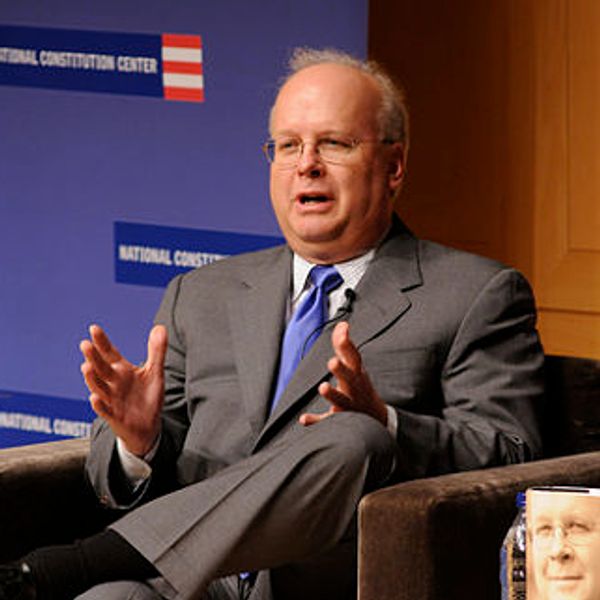GOP 'Glory Days'? The Insurance Market Before Obamacare Was A Nightmare

President Barack Obama and Vice President Joe Biden applaud passage of the Affordable Care Act on March 10, 2010
The Republicans seem to hope that most people have no knowledge or memory of the insurance market before Obama pushed the Affordable Care Act (ACA) through Congress. Most people would probably not like to go back there.
The big problem with the pre-ACA insurance market is that insurers don’t like to insure people with health issues. This might be too complicated for a Republican politician, but it is pretty straightforward to ordinary people.
Most people are reasonably healthy. For that reason, insurers are happy to cover them. From the standpoint of an insurer, covering a healthy person just means that someone is sending you a check every month. It’s a good deal, if you can get it.
But covering people with serious health issues is a totally different ball game. These people actually cost insurers money. They have to pay for doctors’ and hospital bills, drugs, therapy, and all sorts of other expenses.
Since insurers are much smarter than Republican politicians pretend to be, they could avoid paying the bills for people with serious health conditions by just refusing to insure them in the first place. If someone had a history of cancer or heart disease, insurers could just refuse to offer them coverage. People with health problems are money losers for insurers, they want to cover the people who just send them checks.
Some states put restrictions on insurers’ ability to reject people for pre-existing conditions. The response in that case was to simply charge people with health issues a much higher premium. That meant that a cancer survivor or person with heart disease might pay a premium three or four times as high as a person in generally good health. This would make the policy unaffordable for most people with health issues.
Even if they do end up paying the bill, the insurer will have limited their losses by collecting high premiums. And, who knows, not all cancer survivors have recurrences, maybe the insurer can just put those higher premiums in the bank.
Then there was also the trick of rescission. This meant that an insurer would go over the health forms that people were required to submit before getting insurance, to see if there was some basis for cancelling the policy. This could mean, for example, that an insurer could cancel the policy of a cancer patient because they had failed to list a visit to the hospital on an insurance form. As a result, instead of getting stuck with tens or hundreds of thousands of dollars of bills, the insurer could stick the patient with it by claiming they lied when they took out the policy.
This is what the Republicans are telling us was the golden age of the health insurance industry, that was ruined by Obamacare. Obamacare required that insurers issue policies to people without regard to their health and also required that everyone within an age group pay the same premium.
Remarkably, after the passage of Obamacare, healthcare cost growth slowed sharply. This is the exact opposite of what the Republicans are running around saying.
In the decade before Obamacare passed, from 2000-2010, healthcare costs increased 4.0 percentage points as a share of GDP — the equivalent of more than $1.2 trillion in today’s economy. By contrast, in the 15 years since its passage, health care costs have increased by just 1.4 percentage points. If healthcare costs had continued to increase at the pre-ACA rate, we would be spending another $1.4 trillion year, $11,000 per household, on healthcare.
This doesn’t mean our current healthcare system is great. It is very far from it. Insurers still have an enormous incentive to deny claims and refuse needed treatment. Their abuses can be restrained with serious regulation, but we know the Trump administration doesn’t like any regulations that limit corporate profits, so look for much worse insurer abuses in the years ahead. In a sane world, we would have something like the Canadian universal Medicare system and save hundreds of billions a year on insurance costs.
We also pay way too much for drugs and medical equipment. Drugs are almost invariably cheap to manufacture and distribute. It is government-granted patent monopolies that make them expensive. That is absurdity of the tragic choices many people are forced to make when they have to struggle to find tens or hundreds of thousands of dollars to pay for a life-saving drug. The drug is actually cheap; we just make it expensive with patents. If drug research and development were financed through direct public funding, as we already do to a substantial extent with the National Institutes of Health, no one would have to struggle to pay for the drugs they need.
I won’t give the full sales pitch for Medicare for all here, I just want to make the point that saving Obamacare should not be the final goal. But the key point is that Republicans are pushing total nonsense in arguing that the pre-ACA insurance market was something anyone in their right mind would want to see again. For my part, when it comes to glory days, I’ll stick with the Boss.
Dean Baker is a senior economist at the Center for Economic and Policy Research and the author of the 2016 book Rigged: How Globalization and the Rules of the Modern Economy Were Structured to Make the Rich Richer. Please consider subscribing to his Substack.
Reprinted with permission from Dean Baker.
- Johnson Retreads His Unpopular, Previously Rejected 'Ideas' For Health Care Reform - National Memo ›
- As Insurance Costs Surge, GOP No Longer Pretends To Support Universal Coverage - National Memo ›
- Pushing Back: A Bold Plan To Make American Health Care Truly 'Affordable' - National Memo ›
- GOP targets Obamacare subsidies for deep cuts - The Washington ... ›
- Trump's 'One Big Beautiful Bill' Continues Assault on Obamacare ... ›
- House Republican Health Agenda Cuts Coverage, Raises People's ... ›
- Republicans are targeting a pillar of Obamacare. Millions of their ... ›
- Trump could target Affordable Care Act and Medicaid to help pay for ... ›
- GOP to target Obamacare, gas prices - POLITICO ›
- How Trump and Republicans may change the Affordable Care Act ... ›








